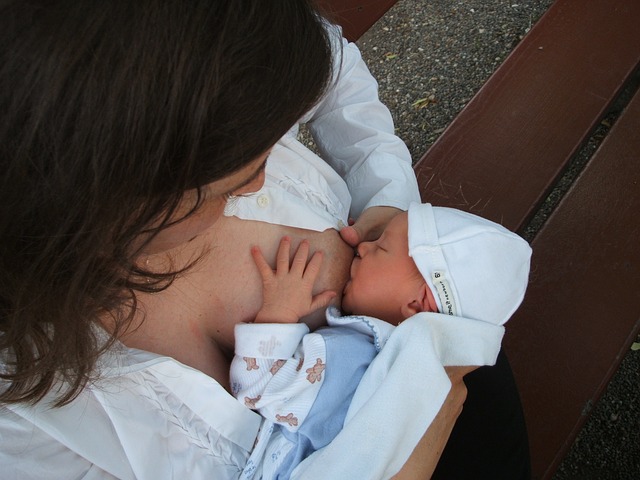If you’re breastfeeding or planning to breastfeed your baby, here are some useful tips on breastfeeding:

1. A mother’s milk supply may vary at different times of the day. Most mothers feel fuller in the morning and less full in the evening. If the mother’s milk supply seems to be lower in the evening, more frequent breastfeeding will satisfy the babies’ needs.
2. Babies can be hungry an hour or so after being fed. Human milk digests more quickly than formula milk. So breastfed babies need to be fed more frequently than the formula-fed baby.
3. Give babies practice at nursing before the mother’s breast becomes full. Give the baby lots of time at the breast in the first few days, allowing him/her to learn to breastfeed effectively before the mother’s breast becomes fuller as milk supply becomes more plentiful – usually on the 3rd or 4th day after birth.
4. If a baby is sleeping or uninterested in nursing during his/her few days, suggest mothers encourage him to breastfeed often.
5. If the baby latches on the breast well, the mother will be able to avoid or minimize sore nipples in the early days after the delivery.
6. Good nutrition and plenty of fluid are important to the quick healing of a mother who had a cesarean.
7. Most exclusively breastfed newborns babies need to be a nurse on average 8 to 12 times in 24 hours in order to get enough milk.

8. A healthy baby with a good latching pattern will naturally settle into the pattern or breastfeeding that is right for him/her.
9. Some normal and healthy babies spit out regularly after nursing, at least once a day, during their first 3 months.
10. Some reasons why babies spit up include a strong let-down, immature muscle control, allergy, consume too much milk. Sometimes the reason for spitting up cannot be determined.
11. Colicky babies suffered from intense physical discomfort, the entire body is tensed, usually pulls up his legs towards his abdomen and screams in a high pitch voice.
12. Colic usually occurs during the late afternoons or evenings and can last for hours. While crying, these babies tend to swallow a lot of air, which may make them feel even worse. By holding the baby when he/she cries, he will feel cared for until he eventually outgrows this sensitive stage.
13. If nursing doesn’t help, some of the following comfort measures for babies can be tried.
14. Change his diapers, undress completely to see if any of his clothing may bothering him, get into a warm bath, give him a massage, put him in a sling or softer baby carrier and walk around the house or outdoors or take him to a quieter room.
15. Lay him tummy down after massage and pat his back.
This article is contributed by Mdm Rokiah of Traditional & Holistic Postnatal Centre.
Join the Breastfeeding with Love Group to find out more and be part of our breastfeeding online community!

|
Click on the logos to find out more about our supporting partners.
Like what you see here? Get parenting tips and stories straight to your inbox! Join our mailing list here.
Want to be heard 👂 and seen 👀 by over 100,000 parents in Singapore? We can help! Leave your contact here and we’ll be in touch.

















































Leave a Comment: